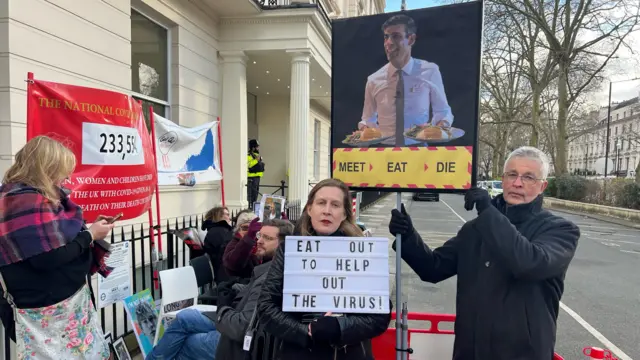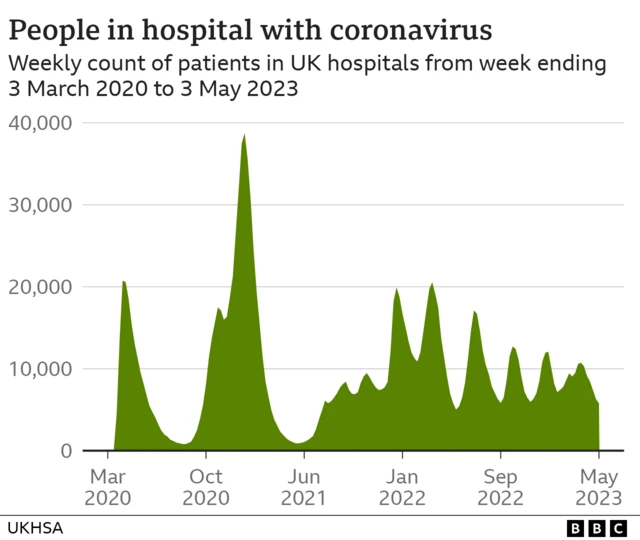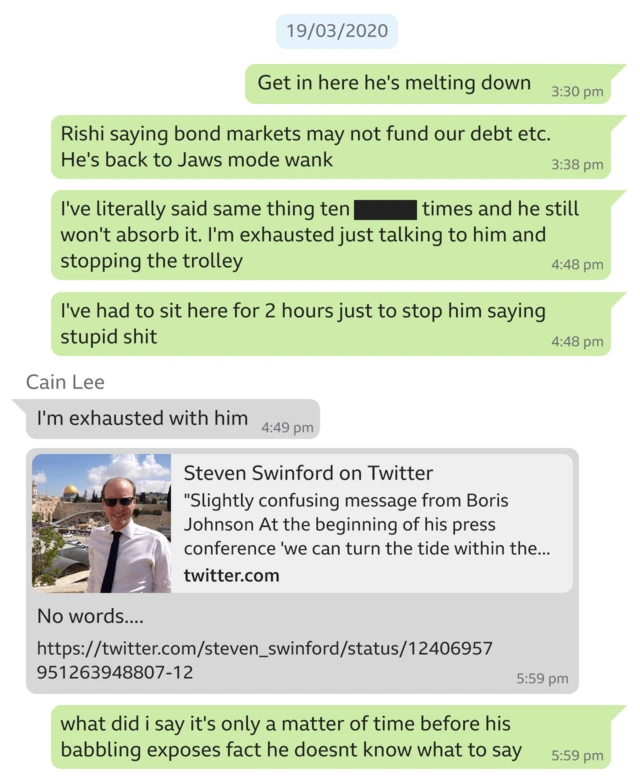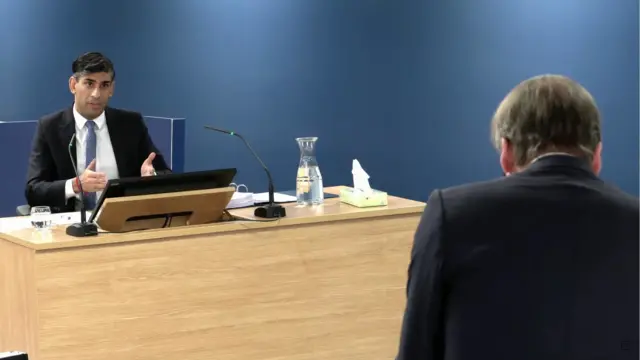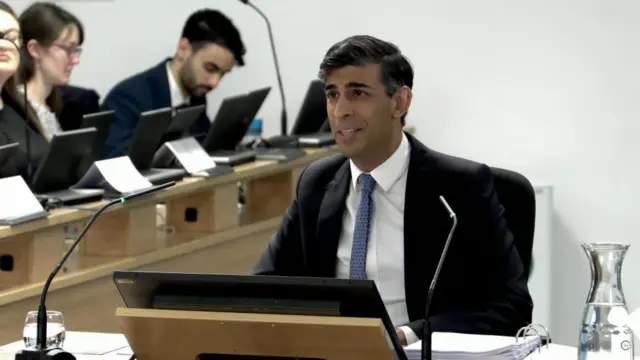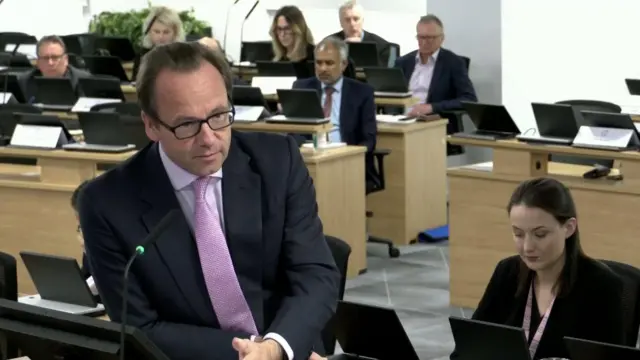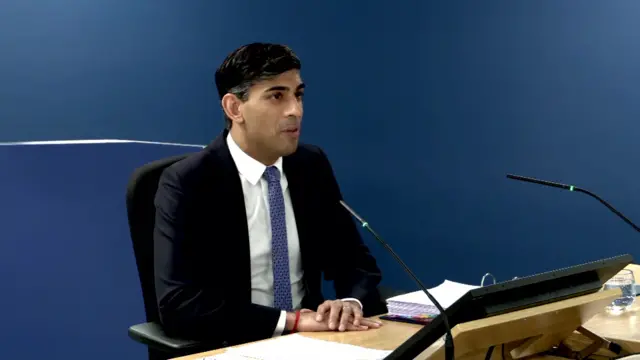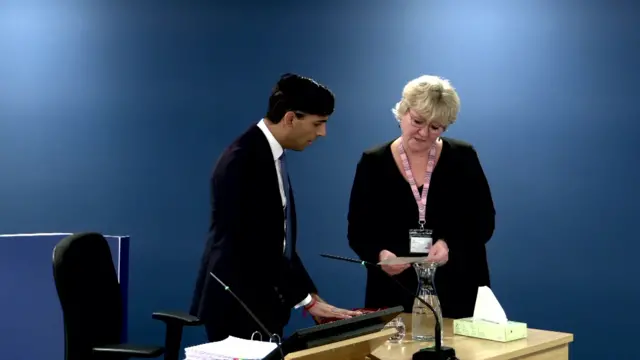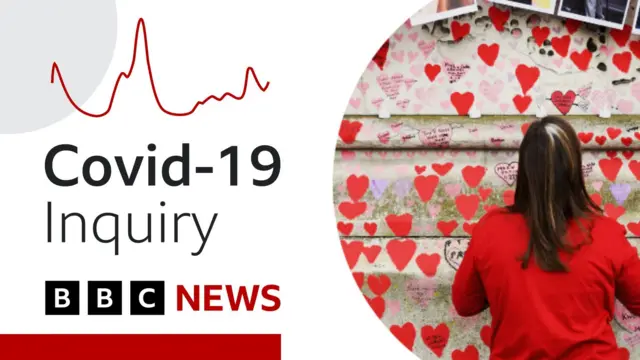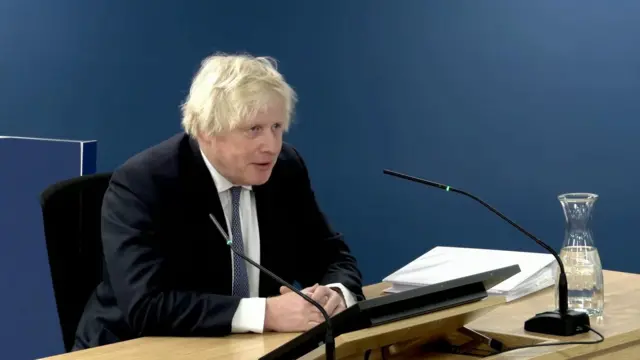Time for lunch - and a recappublished at 13:28 GMT 11 December 2023
The inquiry is now breaking for lunch – so let's look back over the key lines so far:
An apology: Rishi Sunak opened by saying how "deeply sorry" he was "to all of those who lost loved ones" and who "suffered" in the pandemic
Missing WhatApps: He told the inquiry he did not have access to WhatsApp messages from the start of the pandemic as he had changed his phone "multiple times over the last few years". He added he was "not a prolific user" of the app
Long hours: Sunak gave some insight into the demands of the job, saying he saw Boris Johnson "more often than I saw my own wife"
It felt fine to me: Asked about alleged "dysfunction" in No 10 and the Cabinet Office, the former chancellor said his interactions with both offices "felt fine to me"
A defence of Johnson: Where others have criticised Johnson for his decision-making and language, Sunak said his old boss was right to "go over the arguments" and "test out different points of view"
Bond market panic: Sunak recalled the "very significant move" in gilt rates - i.e. the cost of government borrowing - on 19 March 2020, causing "enormous anxiety" inside the Treasury
Eat out questions to come: The inquiry has not asked yet about the Eat Out to Help Out scheme - but one protester outside is holding a placard that says: "Meet, eat, die"
